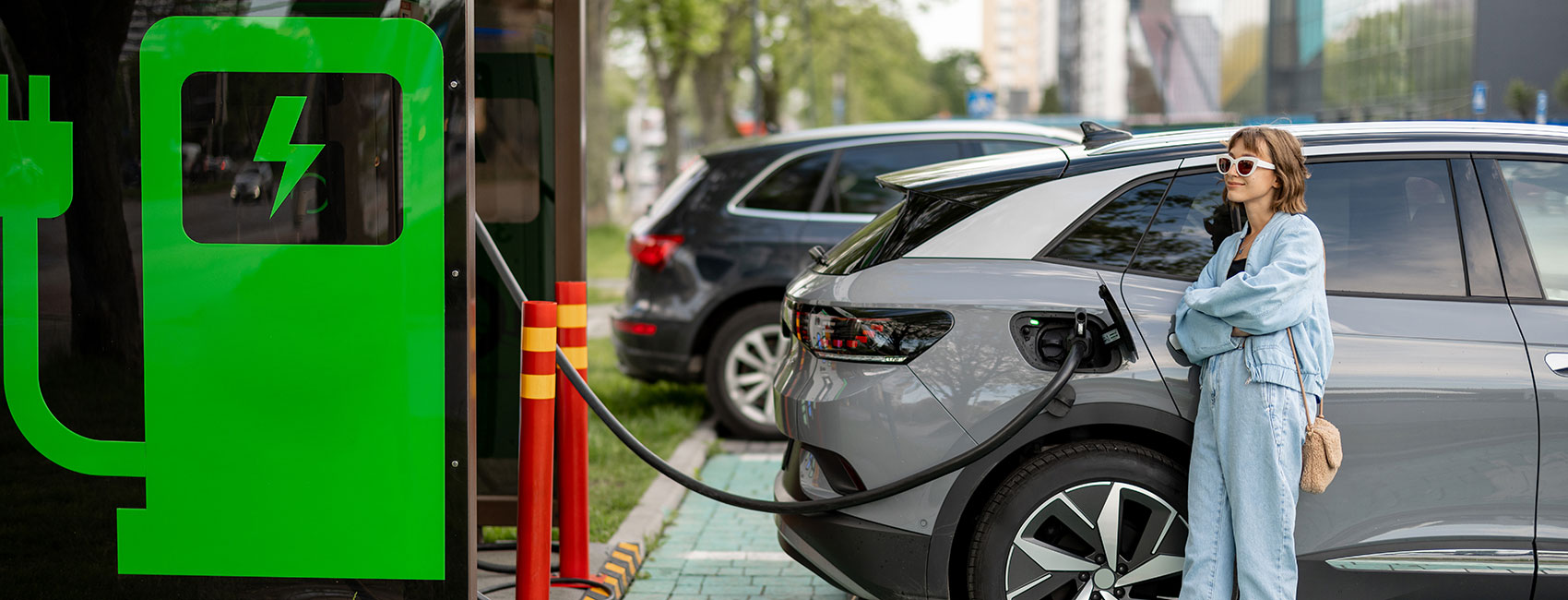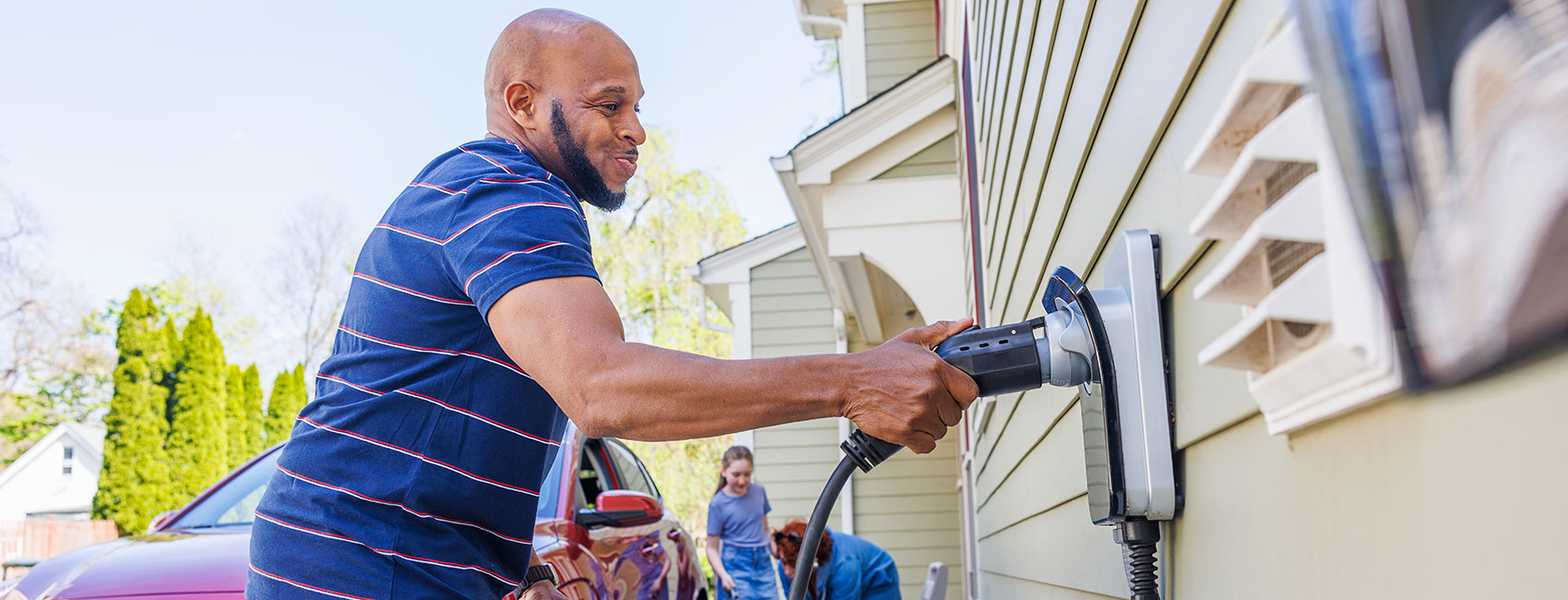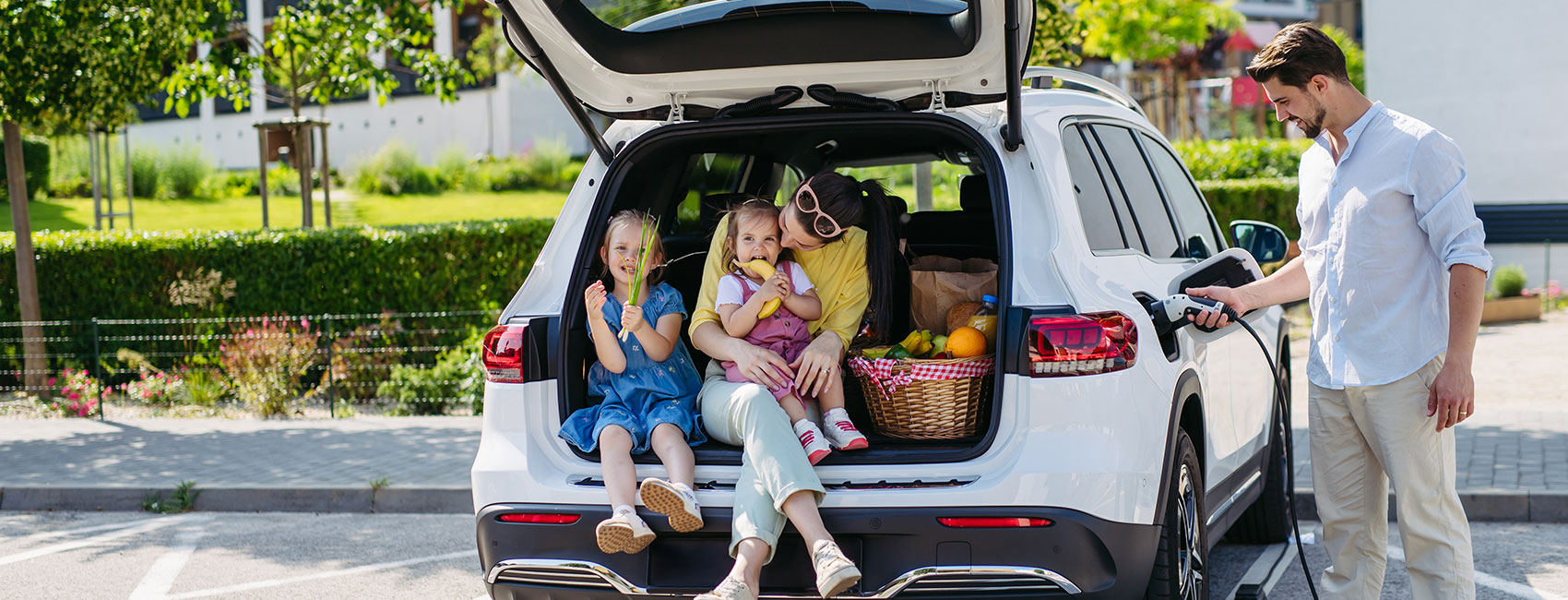Charge ahead into EV driving
9/3/2024Thinking of switching from gas to electric? Whether it’s to cut down on maintenance costs, help protect our planet or save on gas, it’s important to know the costs and savings of driving electric vehicles.
Here’s our helpful primer on the economics of eco-driving that compares your costs and savings when you plug into electric vehicle (EV) driving.
SAVING: You can apply for rebates
One of the first rewards of going electric has always been the cash incentives you can get back in your pocket. While some of the well-known vehicle rebates are now paused, there are still ways to save, especially if you’re installing charging at home. The rebates:
- CleanBC Go Electric Rebates
In BC, passenger vehicle rebates are currently paused and not accepting new applications. However, CleanBC still offers savings when it comes to charging. - Home EV chargers for single-family homes.
- Get up to 50% back (to a maximum of $350) on the purchase and installation of a Level 2 home charger.
- Indigenous households qualify for an enhanced rebate of up to 75% back (to a maximum of $750).
- Multi-unit residential buildings (condos, apartments). Stratas and building owners can access rebates to help cover the cost of preparing the building for EV charging and installing shared chargers. If you live in a condo or apartment, you can encourage your building to explore these rebates.
- Federal iZEV Program
The Government of Canada’s iZEV program, which provided up to $5,000 toward eligible EVs and fuel-cell vehicles (and smaller amounts for plug-in hybrids), has been paused since January 2025 after funding ran out. No new federal rebates are available at this time. - Eco-friendly insurance savings
Some car insurance providers offer discounts for electric vehicles, making it even more affordable to own one. For example, BCAA Optional Car Insurance provides 5% in savings through its Eco-Friendly Vehicle Discount. - Sedans: The Hyundai IONIQ, a popular EV sedan, starts at around $57,779 CAD, while a comparable gas-powered sedan like the Honda Accord starts at about $41,734 CAD.
- SUVs: Similarly, the Hyundai Kona EV begins in the region of $49,000 CAD, compared to the Hyundai Kona gas-powered SUV at around $29,500 CAD.
- Trucks: Shopping for a truck? The Ford F-150 Lightning EV starts at $57,300 CAD, while a gas-powered Ford F-150 starts at $47,600 CAD.

COST: Consider the EV price tag
Although rebates are fantastic, the upfront cost of an EV is almost always higher than their fuel-driven counterparts. Here’s a few comparisons:
Yes, the higher cost of EVs and hybrids can be balanced by the long-term fuel savings (not to mention reducing your greenhouse gas emissions) but that initial cost is an important factor to weigh. If you get the larger rebates (based on your income), you’ll find your final EV price tag is closer to the gas-powered models. If you’re in the market for an EV, check out our BCAA EV buyer’s guide to compare the prices on new models.
SAVING: Filling your tank versus charging your battery
When you own an EV, you may get a giddy rush when you recharge your battery. Many public charging stations are free (!) or they’ll give you an affordably subsidized rate. You can often charge your EV on a public charger for as little as $10 to $30 for a full charge, depending on the provider and your range.
Compare that to when you used to roll into a gas station. Do the math over the course of a year based on how much fuel you use, and if you drive a lot (and Canadians sure do like to drive), you’ll realize the battery-charging savings really stack up, especially when gas prices soar.

COST: Do you plan on installing a home charger?
Many EV owners are choosing to install home charging stations. If you see real value in simply plugging in your ride while you sleep, there’s a cost to consider. Your cost to buy and install a Level 2 home charger ranges from $700 to $2,000 CAD, depending on the model and installation complexity. However, you’ll likely forget all about this one-time cost when you’re able to charge up any time you want, without waiting.
According to PlugInBC, drivers who charge their EV at home pay $2-$4 for every 100 kilometres they drive. People who have EV chargers at home, or provided by their strata, can expect to pay $300-$600 a year in electricity costs based on the Canadian annual average mileage of 15,000km.
Pro tips: You can keep costs low if you charge your EV overnight when electricity rates are lower. Yep, BC Hydro charges you less when you use electricity when it’s quiet between 11pm and 7am. It costs more to use electricity during peak hours of 4pm-9pm.
SAVING: Reduce the cost of routine maintenance
Routine maintenance is another area where EVs shine. Not only does driving an EV mean no fuel, but there’s no engine in an EV, and no alternators, gaskets, fan belts or exhaust to age, rust or break down.
As a result, your regular maintenance costs drop significantly when you’re an EV owner. Fewer moving parts means less wear and tear and breakdowns. If your EV’s battery, brakes and tires are in good shape, you’re pretty much good to go. Factor in this saving over your car’s lifetime. If you’re wondering about your EV’s battery life, here’s a blog on how long your EV battery will last.

COST: Freedom on long drives
This may not directly be a financial cost, but EV owners have to be strategic about charging their vehicle on road trips. Unlike gas stations, which are still everywhere (and fast to fill your tank), EV charging stations can require a little more thought.
Depending on your route and availability of fast chargers, you may need to plan your stops carefully. What if your first-choice charging spot is not available? You’ll need to keep a back-up in mind. Charging stops may add extra time to your journey, or you may need to factor in accommodations where you can charge overnight.
On the bright side for EV and hybrid owners, there are over 5,000 public charging stations in BC. That’s compared to just 917 gas stations in the province, down from 1,392 gas stations in 2021. To help plan an EV road trip around the province, here’s our EV road trip guide to travelling around BC.
SAVING: BCAA still has your electric vehicle covered
Going for a ride? Take us along for peace of mind. Whether you’re driving gas, hybrid or EV, you can enjoy BCAA’s Roadside Assistance as part of your BCAA Membership.
But if your EV does run out of charge some day, we can certainly tow you to the nearest accessible charging station. Plus, we have a growing number of BCAA service vehicles that can give you an EV top-up charge to get you where you need to go
Savings and costs of EV driving
| Savings | Costs |
|---|---|
| You can apply for rebates | Consider the EV price tag |
| Charging your battery is cheaper than gas | Installing a home charger |
| Reduce routine maintenance | More planning needed for long road trips |
| BCAA still has your electric vehicle covered |
Get electrifying savings and roadside assistance
At BCAA, we're committed to helping you drive sustainably in eco-friendly vehicles – in addition to the Best Roadside Assistance and savings with hundreds of rewards partners. Not a BCAA Member? Join today!







